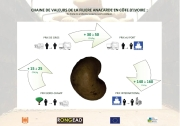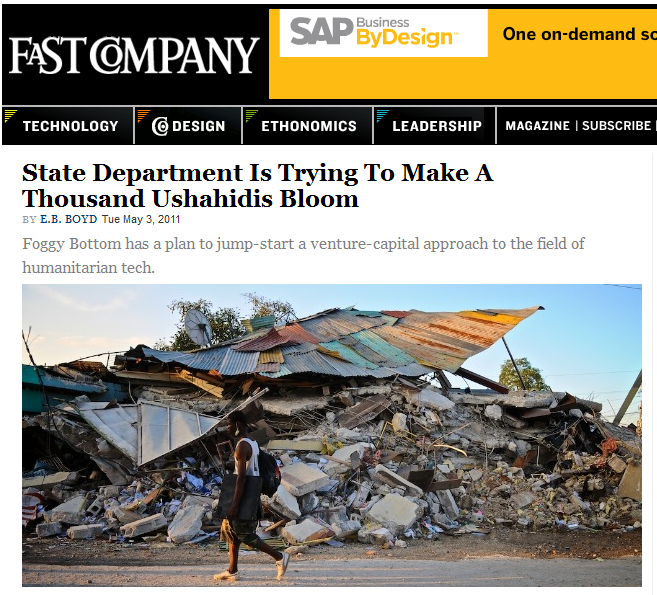By Amy O’Donnell, FrontlineSMS Media Project Manager
At an event held at the Royal Geographic Society, a diverse panel came together to discuss 21st Century Challenges with respect to digital technology in Africa, approaching the question: can technology offer realistic educational, economic and sustainable opportunities?
The BBC’s Technology Correspondent, Rory Cellan-Jones, chaired the event (as a last minute stand-in for Sir Bob Geldolf!) and he explained his impressions of technology’s impact in Africa. He recollected, “When I was in Mombasa I met some farmers, each of whom had a mobile phone even though they didn’t necessarily have water and power. They spoke about connecting with the rest of the world to sell their crops. On another occasion, from a data centre in Slough [in the United Kingdom], I was shown a screen showing transactions of Kenyan farmers who were transferring money via M-pesa.” M for mobile, pesa is Swahili for money; this is mobile-phone based money transfer service first launched in Kenya. These powerful examples helped to kick off an evening which highlighted the changes technology is provoking in Africa.
One of the speakers was Erik Hersman, Co-Founder of Ushahidi, who describes a spirit of “business ingenuity born of necessity,” when speaking about innovation in Africa. Erik has launched the iHub in Nairobi as a space for innovative software development (where the FrontlineSMS development team operates) and is about to open the doors to the mLab (an incubation space for mobile apps and services).
The default device for Africa is a basic mobile, explained Erik, and “SMS technology is now.” He described how iyam.mobi builds SMS services such as directories; and others can build services off the foundation of this structure. Technology is developing at such a rate that, “If you blink, you'll miss it.” Although basic mobile phones are still the most ubiquitous and thus useful devices in Kenya, there is a predicted 843% mobile internet growth by September 2011 compared to 1 year previous. 60,000 Android-powered IDEOS phones have now been sold in Kenya.
Internet use in general is growing, with Erik pointing to 9 million internet users in Kenya as an example of this. A blog by Steve Song shows mapping of the exponential growth in undersea internet broadband cables across Africa. Steve’s site - manypossibilities.net- paints a dramatic picture of the reality of how rapidly this infrastructure is being put into place.
Hubs of technology are emerging across Africa; in big cities such as Lagos, Nairobi and Kampala amongst others, which have proven that critical mass and investment are needed. During his presentation Erik called for more money to be invested in risky start ups to encourage African entrepreneurs to take risks in developing more new solutions. He pointed out the mLab initiative called Pivot 25 which will show us what’s next in the mobile space. "Progress is never made by the pessimists; even we are too small to see the possibilities."
Other speakers at the event included Nicolas Negroponte, from MIT Media Lab who discussed the ‘One Lap Top per Child’ initiative and Herman Chinery-Hesse, who has been coined the 'Bill Gates of Africa,' and runs leading software developer company SOFTtribe limited and the innovative Black Star Line, which is described as an ecommerce market place like eBay.
All of the discussions at this event demonstrated how technology is creating rapid change, which is more accessible in Africa than some people might expect. Herman explained, “I studied manufacturing and when I came back to live in Ghana, I wanted to set up a factory but didn’t have the money. I had a PC and could write software and then I realised - that was my factory!” He also noted that "We have SMS in the bush, and Internet in the cities. We can innovate around that.”
From a FrontlineSMS perspective the key message of the event was empowerment of local people. Although approaching the issue from a wide variety of perspectives, the speakers were all aware of the ability of technology to empower people, particularly if built using local knowledge.
Ken Banks, FrontlineSMS Founder, was interviewed in the lead up to this event and you can watch the video here
You can watch videos from the event itself here: http://www.21stcenturychallenges.org/challenges/digital-technology-in-africa/













 By E.B. Boyd, re-posted from
By E.B. Boyd, re-posted from 